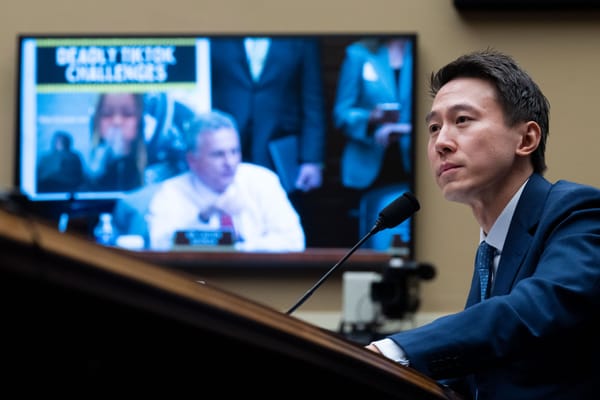Americans were treated to an unusual sight last week when members of Congress from both parties gathered to collectively heckle the CEO of TikTok, a social-media platform that boasts 150 million US users and is a subsidiary of the Chinese company ByteDance. In what seemed like a well-coordinated attack from multiple angles, lawmakers on the House Energy and Commerce Committee lambasted Shou Chew for TikTok’s addictiveness, dangerous content, and what the Intelligence Community charges is a penchant for spying for Beijing.
“The hearings were a stark reminder of how far the consensus has shifted.”
The hearings were a stark reminder of how far the consensus has shifted away from the neoliberal free-for-all of, say, a decade ago—and toward a new concern with the primacy of national well-being. That’s a good thing.
The theme that came up most frequently was the danger TikTok poses to children—a danger China itself has managed to evade by banning TikTok as Americans know it. The Chinese government only permits its population access to a much less addictive, more educational version of the app called Douyin. This version kicks off kids after 40 minutes of use, and much of the content is taken up with educational videos about how to garden and how to be a good citizen. Meanwhile, American children spend hours on the app, where the most effective algorithm in human history directs them to drugs and other racy content, tips for how to sustain eating disorders, and recommendations to kill themselves. “You seem to be able to prevent this content in China,” Rep. Brett Guthrie (R-Ky.) pointed out to Chew repeatedly.
